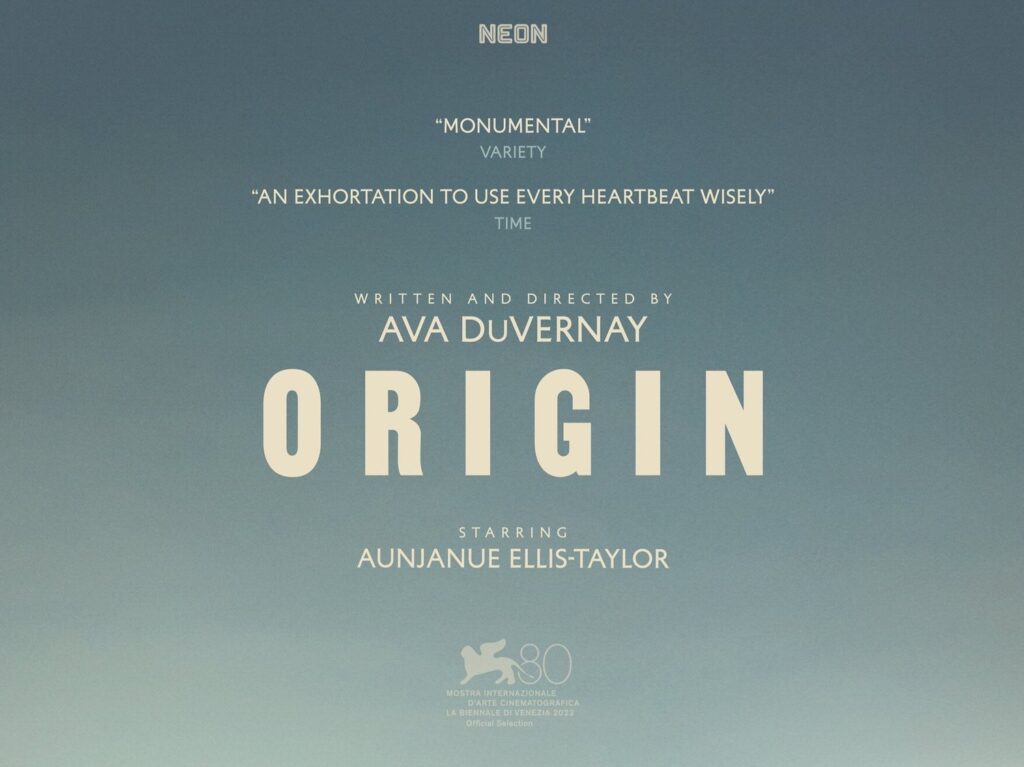
“Origin,” directed by Ava DuVernay, follows the story of Howard alumna Isabel Wilkerson as she navigates the loss of her husband and mother, finds fulfillment in uprooting educational gaps within class, race and the detriment of “lower castes systems” based on societal manipulation and perspective.
The film takes its place as a visual production based on Wilkerson’s novel, “Caste: The Origins of Our Discontents,” which researches the intersections between the creation and mistreatment of working classes worldwide. The initial inspiration for the novel was sparked by the tragic passing of Trayvon Martin in 2012, shortly after Wilkerson had won the Pulitzer Prize for her work “The Warmth of Other Suns.”
DuVernay captivates viewers while displaying Wilkerson’s insatiable thirst for knowledge, skillfully juxtaposed with her raw and humane vulnerability when confronted by personal tragedy. This poignant storyline brings her character back to square one, leaving audiences empathetically engaged with her newfound journey of self-elevation and education.
Hanna Dessie, freshman TV and film major from Los Angeles, added to this, saying, “As you find yourself as an audience member realizing certain things about the world around you, Wilkerson is coming to these same personal epiphanies at the same time, making everything so relatable.”
The audience sat extremely responsive toward on-screen emotions as well. With every tear, the crowd responded with a resounding “Aws,” and every smile yielded applause.
In a specific scene where Wilkerson, played by Aunjanue Ellis-Taylor, relives a previous conversation she held with two German acquaintances of hers, she beautifully places class as the center of discussion for the film as they argue over the impact of the holocaust versus slavery. Wilkerson quickly discovers that the two tragedies, although not racially similar, have much more in common than one may presume.
Through the former Bison’s journey to skillfully unite the oppressive experiences of Trayvon Martin’s passing, to Jewish persecution throughout Nazi Germany and the lower class of Dalit people within the Indian caste system, the audience is brought around the world and back in time, making it a thought-provoking and emotionally resonant viewing experience.
The documentary-like production allows the audience to build inferences upon the perspective-adding take Wilkerson presents in class. When everybody around them places race at the center of the cause for the ensuing madness, she highlights caste systems as a part of the bigger problem at hand.
“The film is not meant to place caste as the center, but rather as a piece of the whole puzzle of societal division and discontent,” DuVernay said in an interview with The Hilltop. “This story is based on interlocking phenomenons that require an intersectional approach… this film is just another color in the painting of this country.”
Cultural customs accepted worldwide are questioned throughout the film, giving it an existential feel. This, mixed with the anguish of losing Wilkerson’s husband and mother, makes even the audience ask themselves, “Why are things just the way they are?”
DuVernay and Wilkerson, the two acting synonymously as history teachers, make the audience question their societal constructs and successfully dismantle foundational concepts that we, as people, just accept.
Junior political science major Israa Mussa from San Francisco, California, shared a similar sentiment, explaining how she believes Origin challenges mainstream beliefs about the foundation of persecution worldwide.
“Ava DuVernay and Isabel Wilkerson unite diverse experiences with this production, sparking a crucial conversation,” she said. “A movie discussing more class rather than race shows the power of universal experience and should be at the centerfold of more of our conversations. The film is simply a great watch.”
The film is exceptionally hard-hitting and self-reflective but not dictative, giving the audience room to come up with their conclusions after watching this masterpiece. Especially with the current problems that this film centralizes itself around, its artwork is resonant and carries forward conversations that, frankly put, need to be had.
DuVernay explained that she wanted the audience to walk away with one vital message after the film was released.
“I hope that this film serves as soul food that sticks to the ribs, leaving a lasting impact on the viewers, not to be ‘empty calories’ lost on the soul. While some films aim to simply provide entertainment or ignite romantic desires within, my ultimate objective with this project is to steer away from being inconsequential and, rather, strive to create a project that lingers in the minds of the audience,” said DuVernay.
Origin is genuine- a story of human experience, grief, and determination that sets itself apart from others by making its audience general and its message personal. This film is original, exciting, and undeniably refreshing, a must-see.
Copy edited by Alana Matthew


